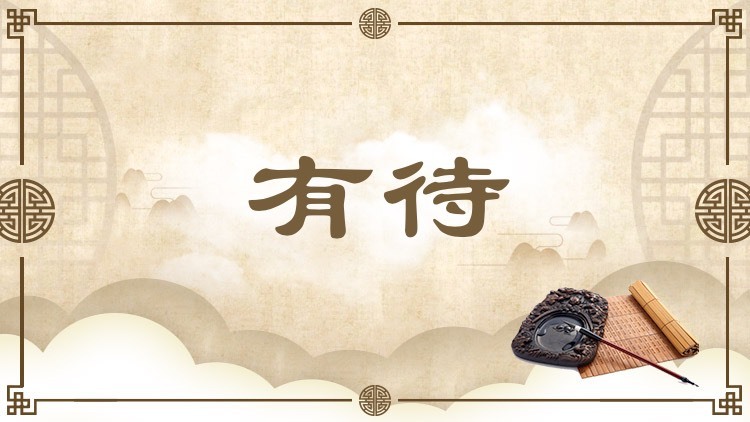Having Something to Depend on

有所依赖,与“无待”相对。“有待”的观念出自《庄子》。庄子(前369?—前286)认为,人和事物的存在无法脱离其所处的境遇,因而总会受到各种外在条件的限制和制约,也即是“有待”的。“有待”揭示了事物之间的相互关联与依存关系。只有人的心灵能够超越其所处的现实境遇,不为外物所束缚、牵累,才可达到一种自由、无碍的“无待”状态。
As opposed to wudai (无待 having nothing to depend on), youdai (有待) literally means "having something to depend on." The concept comes from Zhuangzi. The author Zhuangzi (369?-286 BC) believed that both humans and things are never independent of their surroundings and thus are subject to external restrictions. In other words, they always "have something to depend on." In this sense, youdai reveals the interconnection and interdependence between all things that exist. Only when a person is able to detach himself from his surroundings and clear his mind of all external constraints and encumbrances can he attain the free and unhindered state of wudai.
引例 Citation:
◎罔两问景(yǐnɡ)曰:“曩(nǎnɡ)子行,今子止;曩子坐,今子起;何其无特操与?”景曰:“吾有待而然者邪?吾所待又有待而然者邪?吾待蛇蚹蜩翼邪?恶(wū)识所以然!恶识所以不然!”(《庄子·齐物论》)
影子外的微阴问影子说:“刚才你移动,现在你停止;刚才你坐着,现在你起身;你怎么没有独立的操守呢?”影子说:“我因为有所依赖而这个样子吗?我所依赖的东西又有所依赖而这个样子吗?我所以依赖的就像蛇依赖腹下的横麟、蝉依赖于翅膀吗?我怎么知道为什么会这样!怎么知道为什么不会这样!”
Penumbra asked Umbra, "You were moving a moment ago, and now you are still. You were sitting a moment ago, and now you stand up. Why don't you follow a constant code of conduct?" Umbra answered, "Is it because I have something to depend on? Is it because what I depend on still has something else to depend on? Is what I depend on to me what ventral scales are to a snake or what wings are to a cicada? How do I know what causes it to be so! How do I know what causes it not to be so!" (Zhuangzi)
推荐:教育部 国家语委
供稿:北京外国语大学 外语教学与研究出版社
责任编辑:钱耐安





